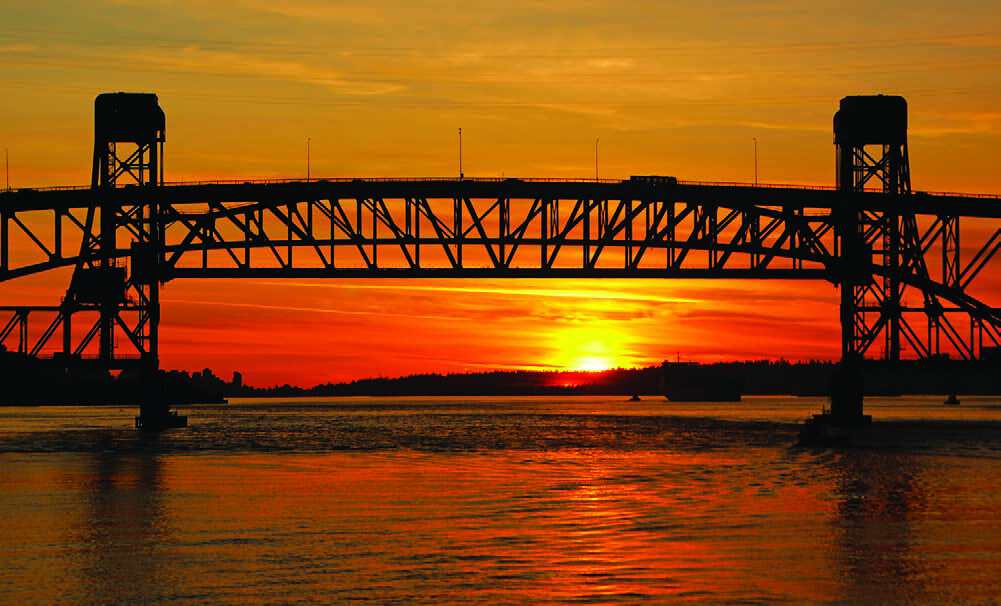The British Columbia election will take place two short months from now – May 9 – and political opinion in the province is as polarized as ever. What a surprise.
The source of much of this fractiousness is the ongoing debate over the best way to develop the province’s abundant natural resources. Or whether to develop them at all.
No matter what the subject is – mineral exploration, mine development, pipeline construction or liquefied natural gas terminals – the debate always seems to be reduced to the economy versus the environment, as if one was the predator and the other the prey.
But most British Columbians are not extremists and they reject the exaggerated claims of anti- development activists. In fact, they’re receptive to – and even hungry for – objective information about resource projects.
Should the resource industry try to reach them? Or should it stick to refuting the claims of strident, publicity-savvy environmental activists?
To find out what resource industry watchers think the right approach is, Mineral Exploration talked to three people with years of experience in different aspects of resource development.
The following interviews have been condensed and edited for clarity.
Stewart Muir
Executive director, Resource Works Society, Vancouver
We see ourselves as honest brokers in a difficult conversation. How can the question be resolved so that everyone wins?

There are a few loud voices on the extremes of the debate, but there is also – according to the polls – a broad middle ground of opinion that demands our attention.
According to an October 2016 Abacus Data poll on oil pipelines, 78 per cent of British Columbians said they were positive about pipeline development if it was linked to a transition to a lower-carbon economy.
We who favour resource development have a duty to talk to the people who either aren’t sure or are opposed.
When we’re talking to them, it’s important to seek common ground and to avoid needless conflict on issues that aren’t central to the discussion. Use plain English as much as possible and avoid jargon ridden, complex language. Try to communicate in metaphors – word pictures – as much as possible.
More people will become open-minded about resource development if you help them, without any pressure, to gain a better understanding of the subject.
Robert Simpson
President and CEO of PR Associates, Vancouver and Ottawa
Many of the people who say they are opposed to resource development have, in fact, a much bigger target in mind. The ultimate goal of many people in today’s environmental movement is to change the content and contours of global capitalism.
“We need to change the way we do business,” they say. What they really mean is, “We want a society that is free of oil and gas.”
Think of Naomi Klein, the author of This Changes Everything: Capitalism vs. the Climate. Although Klein lives in Toronto, she has plenty of supporters in British Columbia. Many people out here are very passionate about protecting the environment, and they’ve had 40 years of experience in honing their message and getting it out to the public at large.
In Eastern Canada, on the other hand, there are more corporate head offices. They have a different take on resource development, and they send out a different message. In addition, the First Nations in the East have signed land treaties with government, but few in British Columbia have done so yet.
In order to get the people in the broad middle onside with resource development, we need to talk to them in non-technical terms, and to use the language of values instead of the language of science.
So far, the environmental groups have been better than the pro- development side at communicating with the public. The people on the side of resource development need to learn from them how to do it. Engineers and scientists need to learn how to listen to the concerns of the public and how to talk to them in a way that they understand and accept.
Byng Giraud
Country manager and vicepresident of corporate affairs, Woodfibre LNG Limited, Squamish
Most people are rational and are able to see the economy and the environment in terms of costs and benefits that can be added up and the totals compared. There is, however, a small percentage of the population that sees questions about resource development in black and white, one or the other, and those voices are the ones that are most often heard in the media.
But the supporters of resource development shouldn’t allow themselves to become consumed by the naysayers on the fringe. Don’t build your strategy around responding to them. They don’t want a meaningful discussion. Instead, talk to the fair-minded people who have legitimate questions that should be answered.
Most people in British Columbia and the rest of Canada are doing okay. They are able to learn about the issues and agree to a compromise. They’re the ones we should talk to.
